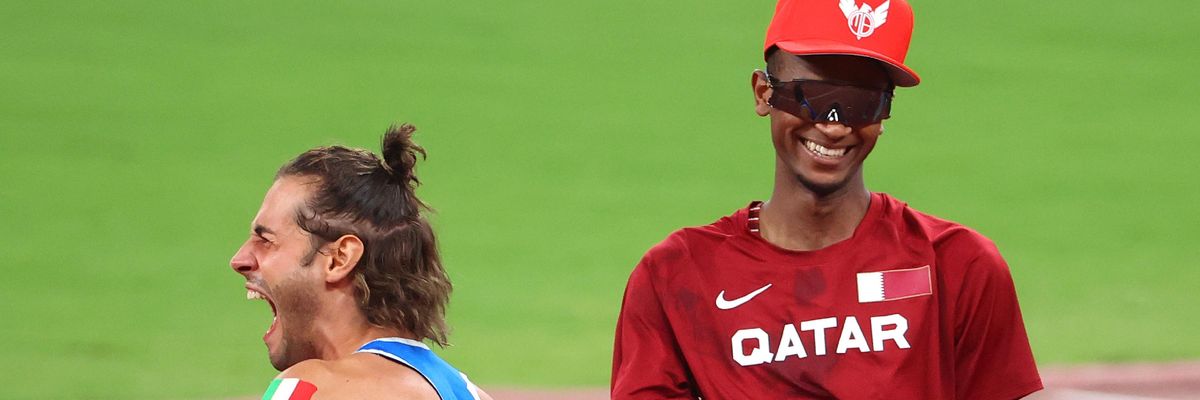Along with their usual taint of jingoism and profiteering, the predictably calamitous troubles of this year's Tokyo Olympics, held though public health experts deemed the world's biggest sports event "the last thing we should be having" amidst a pandemic, have earned the moniker "Cursed Games." Cue surging COVID cases - now 259 and counting - stifling heat, mask skirmishes, and bad press from a country forced to bear the brunt of the "ghoulish self-interest" behind it all. Still, along with Simone Biles' courageous return to the beam, the men's high jump offered one pure, brief, exuberant testament to the kind of right-mindedness these games are supposed to be about. The moment came as Mutaz Essa Bashim, 30, of Qatar and Gianmarco Tamberi, 29, of Italy were fighting it out in the final. Both men had successfully, seemingly effortlessly - Bashim, especially, seemed to float through the air - cleared 2.37 meters (7.78 feet); both then failed to clear 2.39 meters (7.84 feet) in three attempts.
Over 11 years of competition, the two men had grown close. In 2016, Tamberi was training for the Rio Olympics when he tore a ligament in his left ankle; he watched the event in tears from the stands. Two years later, Barshim tore his ligament, same ankle. Both times, doctors said they might not jump again; both times, each helped the other through. Tamberi was at Barshim's wedding; Barshim will be at Tamberi's. When the stalemate in the finals came, an official stepped up to explain what came next: In a tie, World Athletics Rule 26.8.4 calls for a jump-off. He hadn't finished talking when Barshim interjected: "Can we have two golds?" Actually, it turns out, yes. The two athletes didn't speak. "I look at him, he looks at me, and we know," said Barshim later. "It is done." Tamberi - okay, he's Italian - exploded: He leapt into Barshim's arms, danced, wept, pounded the floor; Barshim grinned, indulging him. Online, many celebrated the "moment of magic," the "joy of winning together." Though there were soulless cranks. The rare deal, huffed one, was "utterly at odds with the concept of elite sport." But not fellowship, selflessness, good will. In these riven and rancorous times, take your pick.

